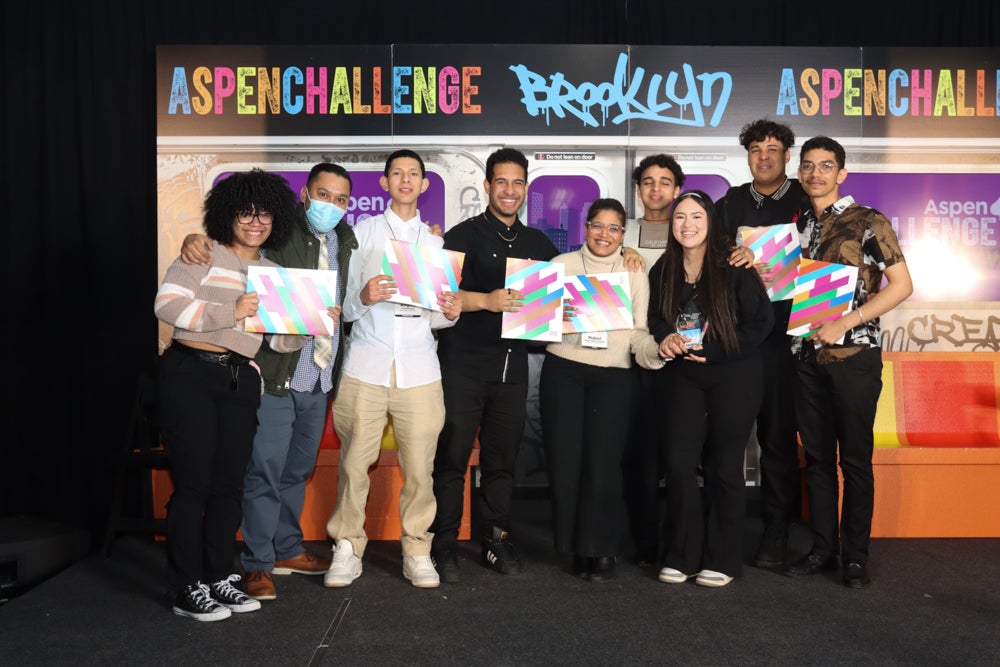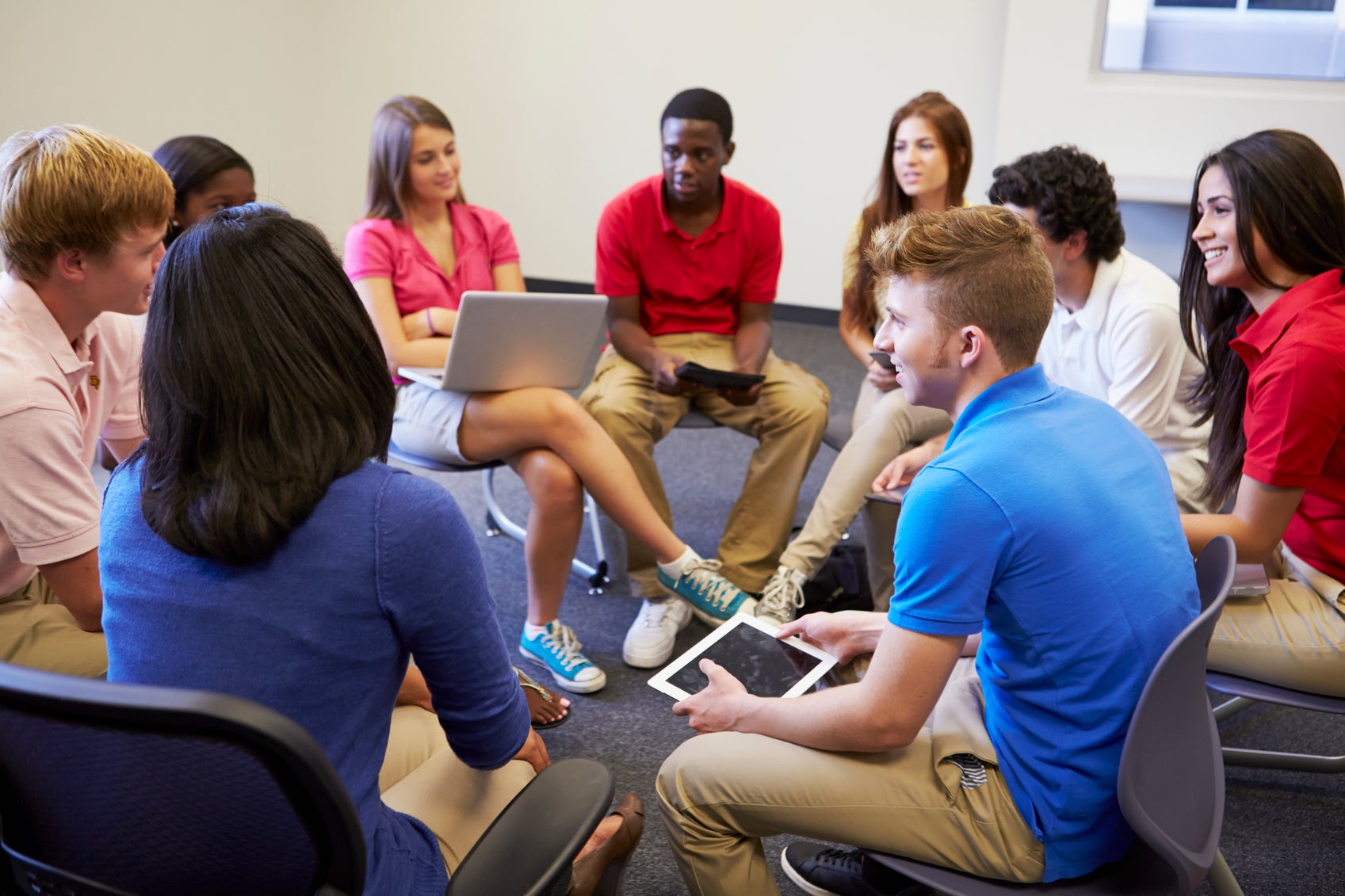Twenty of us gathered in a spacious living room at the base of Utah’s Wasatch mountain range to start healing our nation. As we introduced ourselves, it became clear we were all of a kind – well-meaning, educated white people curious about new ideas. We were drawn here to wonder together how Americans might build trust again in our deeply-divided country.
I was skeptical. How could small groups in living rooms be the path to transform society? Then Jacob Hess, who describes himself as a religious conservative, shared his story. While in graduate school, Jacob received a call that his 21-year-old brother was going to die from cancer; the doctors could do nothing more to save him. When he hung up the phone, he realized someone else was in the room.
“She was a lesbian classmate of mine,” Jacob said as he teared up. “She didn’t see the world the same as me, but in that moment, she just held me as I sobbed. It didn’t matter that she saw sexuality or God or the universe differently, it didn’t matter. What mattered is that she was there for me.” That was the beginning, Jacob said, of his learning to let go of the rhetoric he had heard about liberals “trying to destroy America.”
Jacob works with Living Room Conversations, a group that has a network of hosts around the country who invite people into their homes for structured conversations about big questions, from gun violence to climate change. This evening, he explained to us, they were testing a new conversation guide about how to weave our communities together at a time when isolation, division and loneliness seem the norm and our social fabric is tattered and frayed.
Our conversation was inspired by David Brooks, the New York Times columnist, who has written about his own journey out of loneliness and isolation toward a life of “thick” relationships. Brooks argues that American culture in general has become hyper-individualistic, valuing self-centered achievement and social freedom over relationships and a shared commitment to our communities. He cites rising rates of suicide, mental illness, violence and political gridlock as a sign of our disconnection and isolation.
Brooks joined the Aspen Institute last year to start Weave: The Social Fabric Project to celebrate and support the thousands of people quietly working locally to build strong relationships and connect their communities. He calls them Weavers.
Jacob Hess attended the first national meeting of Weavers in Washington, DC last May, organized by the Weave project, and helped write the discussion guide that brought our group into this living room.
Hess, a psychologist and mindfulness teacher, said he has seen how anger isolates us, especially now. He wondered aloud how best to hear and respect people’s anger, while also finding a way to move towards constructive conversation with those who think differently. A woman named Miriam Hyde spoke up. She felt anger was getting in the way of meaningful connection in her life. After a divorce, she has lost friends and support and feels very isolated.
She is trying to understand why the only interactions she has with her family are personal attacks about politics on Facebook. “My family doesn’t love me because I’m a Democrat,” Miriam told the group with a laugh. “The anger is so thick, that wall is so thick, that you can’t talk.”
The group agreed that something has shifted in the country, that things weren’t always this bad. Grethe Peterson – who described herself as “the relic in the room” – remembered being raised by her Democrat parents in a conservative community and living in harmony with those they disagreed with.
“Something has deeply changed,” Peterson said. “We were not tearing each other apart; we were not accusing each other of destroying the world.”
A thunderstorm moved over the valley, and we could hear the rain on the roof and occasional roars from the sky. It’s a rare sound in this dry mountain region, but seemed to mirror the social storms gathered over the US that would unexpectedly erupt in a Charlottesville or El Paso or at a family Thanksgiving dinner that turns to politics.
Working from the Weave discussion guide, Jacob asked the group questions. What are the impulses inside of you that resist connecting with those who are different? Where do you see yourself wanting to weave more? What connection, if any, do you see between what is happening in our nation and what is happening in our neighborhoods or communities?
People shared the ways they each reach out to people who are different from them in their own lives, and where they struggle with this. They talked about ways of diffusing anger, and how to break through an impasse. They talked about the way it changes your perspective if you can be of service to others. At the end of the evening, Hess challenged the group to bring someone they disagreed with to the next meeting.
Afterwards, mingling over snacks, our host asked guests to sum up their takeaway from the evening in a sentence.
“There are ways to create conversation and dialogue that have the potential of changing hearts,” said Mark de St. Aubin.
“Relationships trump ideology,” said Rick Casady.
“I realized how small my life has become, not having family connections, friends, stability,” said Miriam Hyde. “You go into survival mode. Your life becomes very small. I’m living in a fear-based life, but I can change my attitude. I can stop being afraid, and open myself to people.”
A dozen community conversation groups plan to hold these Weaver Conversations in homes and community centers across the US in the spring, as part of the National Week of Conversation, April 17-25. If you follow the Weave project’s newsletter, you can hear about them – and even start a conversation in your own community.
Stepping outside into the rainy Utah night, I realized I was still holding onto some of the skepticism that I came with – that tonight’s conversation would illuminate a path that could somehow heal the significant ills of our society. Yet I also had a newfound appreciation of the importance for each of us to open up, rather than close off in the face of uncertainty and change.
We all must find whatever it is that helps us be more connected… and do it more, even if the first step pushes us out of our comfort zones. The forces today that divide and conquer are strong. Yet no matter our politics and backgrounds, many of us sense deep down that our communities, and our country, need us to work together.

